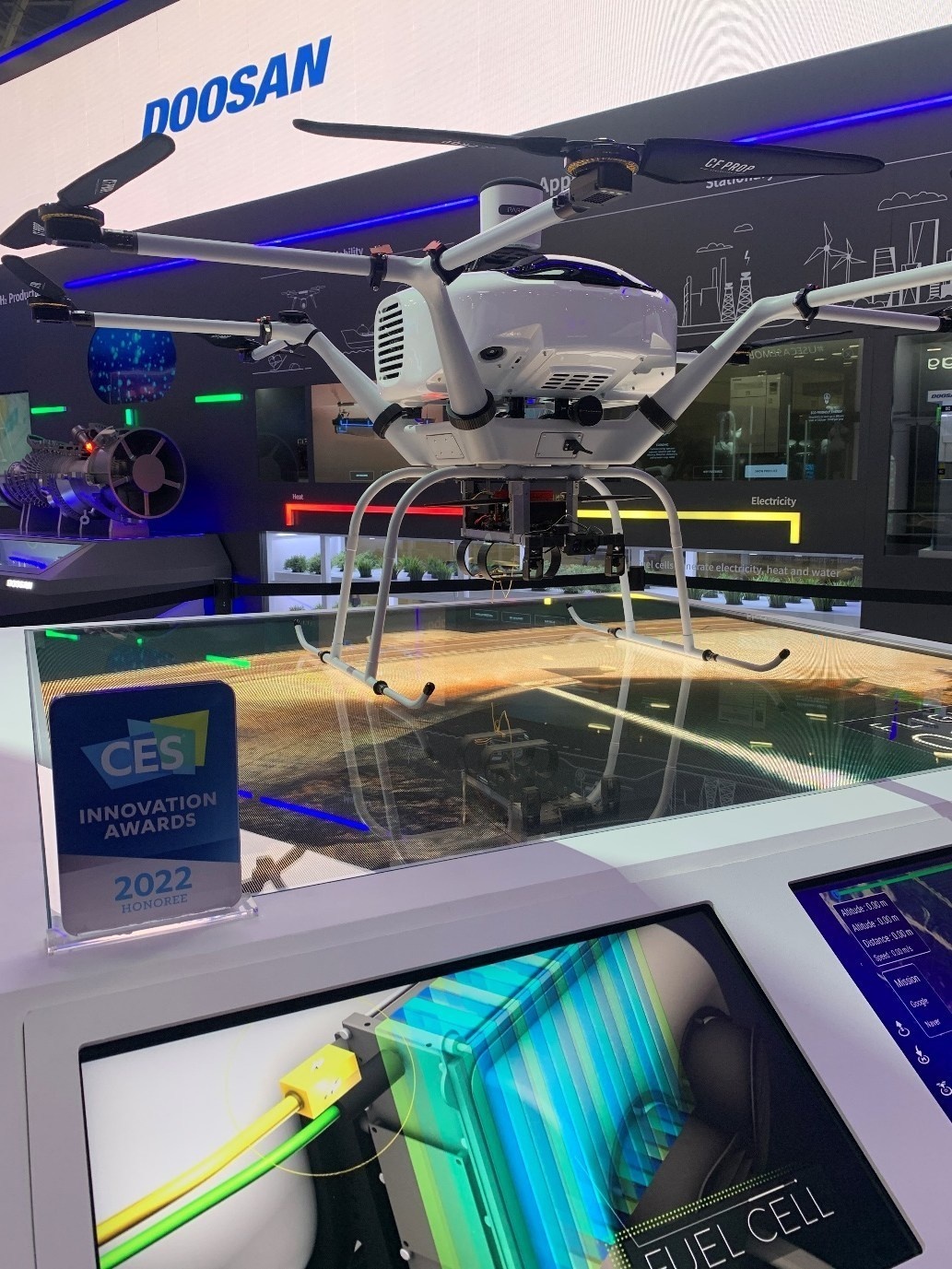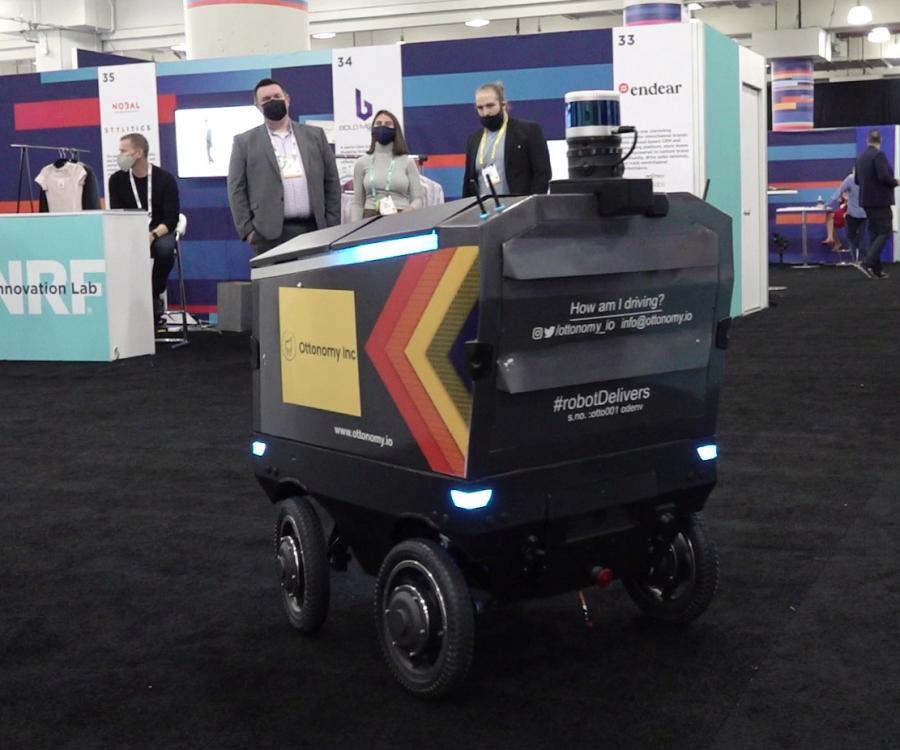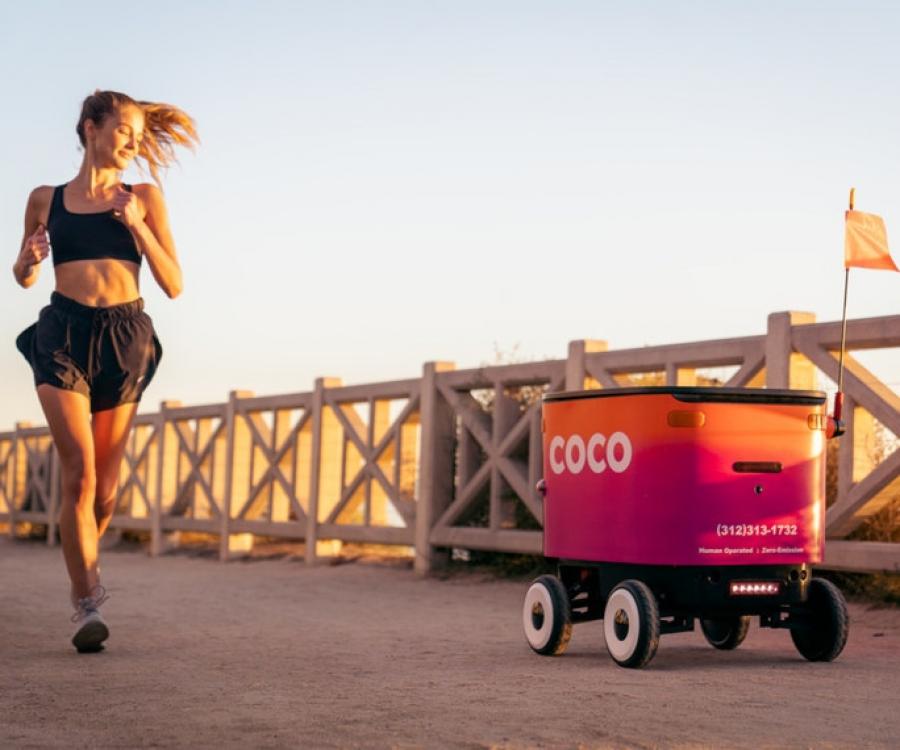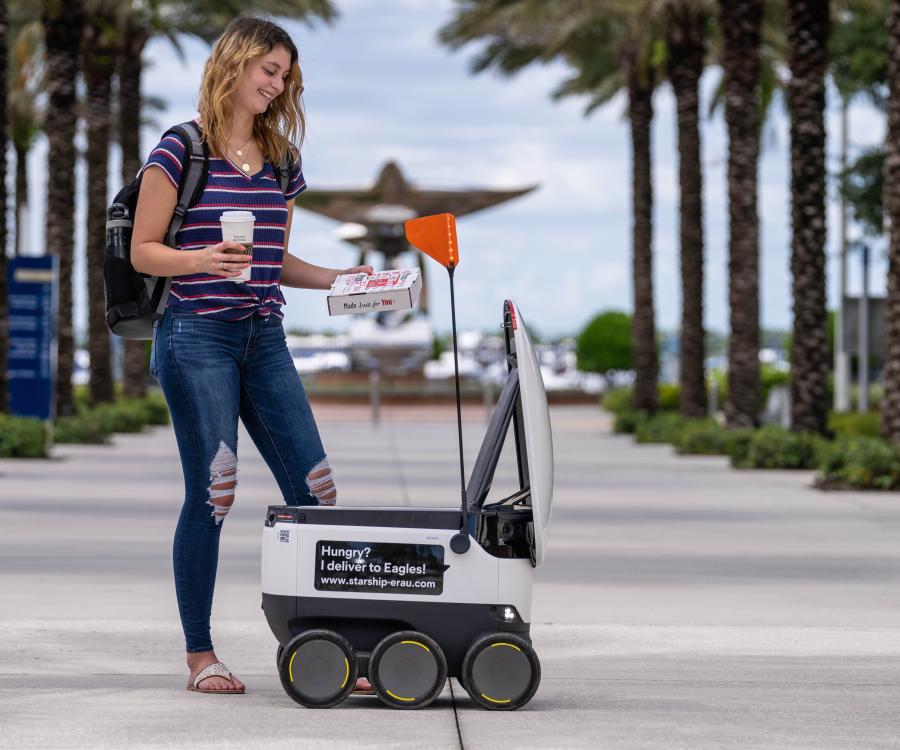
Doosan Mobility Innovation (DMI) and 42air signed a memorandum of understanding (MoU) at CES 2022 for a partnership to co-develop delivery services using hydrogen fuel cell unmanned aerial vehicles (UAV). This agreement formalizes their mutual commitment, and strengthens the future engagement of both parties in expanding hydrogen fuel cell drone operations in maritime drone delivery.
DMI and 42air agree that delivery is a strategically important future use case for drones, and that by working together, the two companies are poised to become market leaders in the drone delivery industry.
DMI and 42air plan to collaborate to create new business models and develop a service model including specifying and integrating fuel cell power systems, automation software, logistics software, cargo handling systems, and other technologies and processes to enable the new aerial delivery ecosystem.
Maximizing drone performance for maritime deliveries
DMI, a market leader of hydrogen fuel cell drones, delivers commercial drone platforms with fuel cell powerpacks to maximize drone performance. The hydrogen-powered fuel cell drones can stay airborne for over two hours of flight time, as fuel cells have approximately 4 to 5 times higher energy density when compared to lithium-ion batteries. This makes hydrogen powered drones Beyond Visual Line of Sight (BVLOS) capable and well suited for delivery purposes.
DMI has won two CES 'Honoree' awards this year, with hydrogen fuel cell VTOL (vertical take-off and landing) in the "Drones & Unmanned Systems" category and Solar inspection solution with hydrogen drone (DP30+DS30W) in the Sustainability, Eco-Design & Smart Energy" category. This follows on their success at CES 2020, where DMI also won the 'Best of Innovations' and 'Honoree' awards.
42air, the US subsidiary of South Korean startup 42dot that specializes in autonomous Transport as a Service (aTaaS), has pioneered delivery to ships in the Mississippi River, operating under visual flight rules authorized by Part 107 regulations. By working with DMI, 42air envisions expanded operations beyond visual line of sight, and using heavier and faster vehicles than allowed for by Part 107. Future delivery operations are planned to ships in anchorages around the Port of Los Angeles, as well as deliveries to oil platforms in the Gulf of Mexico. The 42air technology builds on and extends 42dot UMOS (Urban Mobility Operating System) to also support aerial delivery and logistics.






